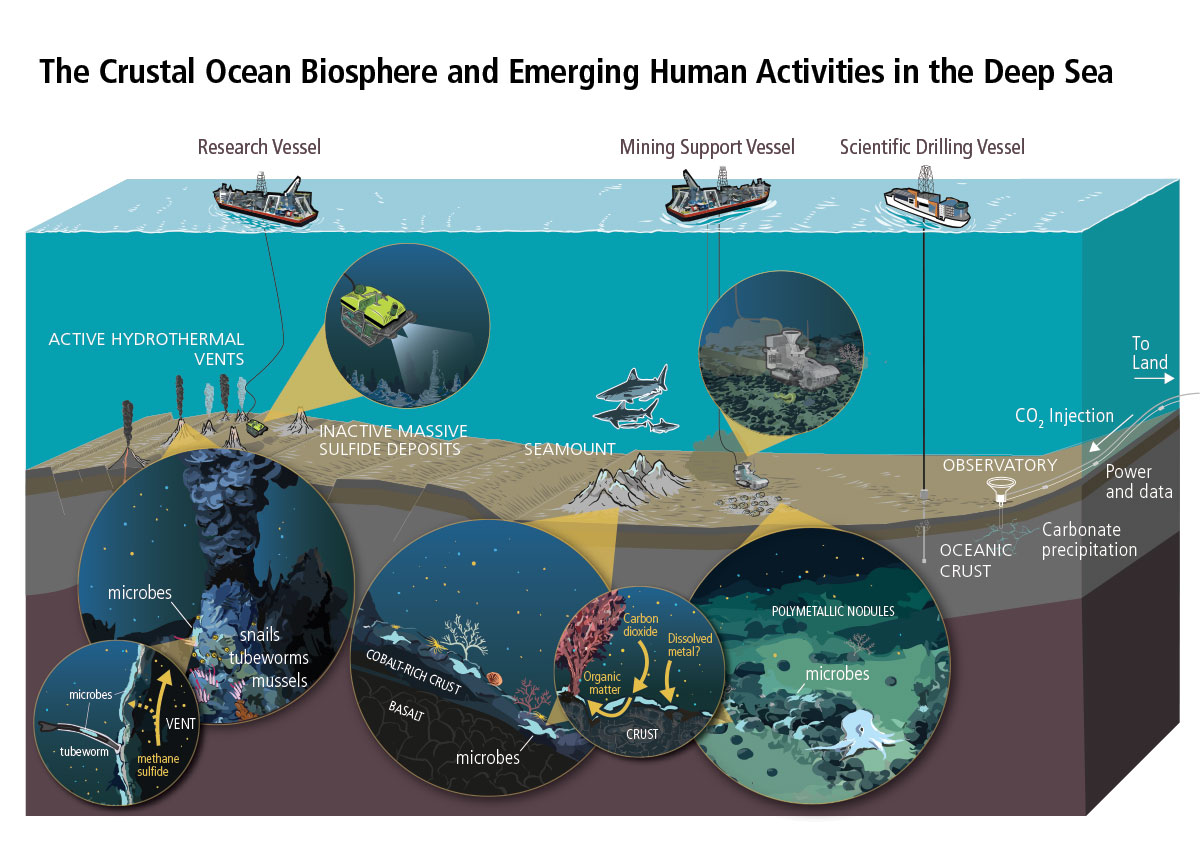Marine Technology Society Journal
Volume 55, Number 3, May/June 2021, pp. 130-131(2)
Julie A. Huber1 and Beth N. Orcutt2
1Woods Hole Oceanographic Institution
2Bigelow Laboratory for Ocean Sciences
The deep seafloor covers two-thirds of Earth’s surface area, but our understanding of the ecosystems and resources found in the deep ocean, as well as the ability of deep-sea ecosystems to withstand human perturbation, is limited. These deep-sea habitats demand urgent study as there are emergent human uses in the form of deep-sea mining and carbon sequestration that will fundamentally alter physical, chemical, and biological conditions that took millions of years to establish. We propose the international network COBRA, a research accelerator for the crustal ocean biosphere. COBRA will bring together diverse stakeholders and experts, including interdisciplinary academic and government scientists, private institutions, policy makers, data systems engineers, industry experts, and others to coordinate efforts that generate new knowledge and inform decision making about activities that could affect the deep ocean and, by extension, all of society. We will also train the next generation of leaders in ocean exploration, science, and policy through an innovative virtual program to carry this effort into future generations of ocean and earth science research. COBRA will inform policies relating to emergent industrial uses of the deep ocean, decrease the likelihood of serious harm to the environment, and maintain ecosystem services for the benefit of society.

